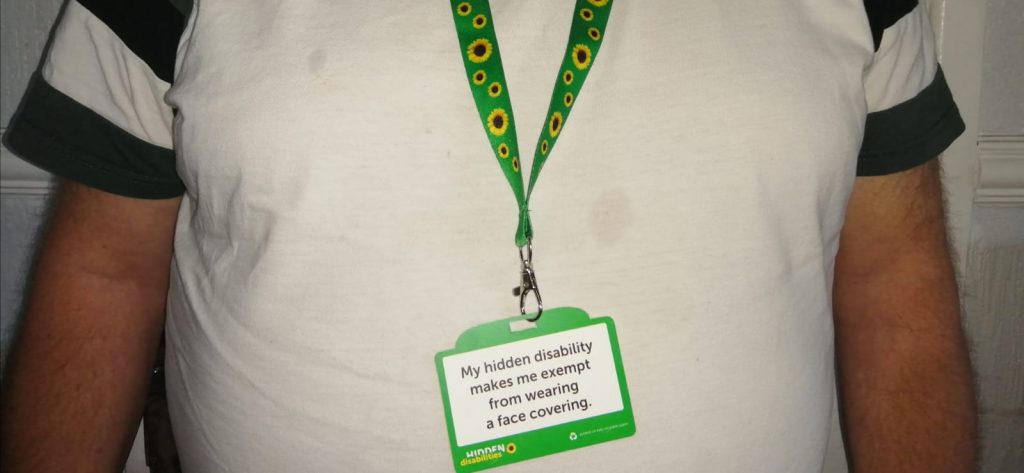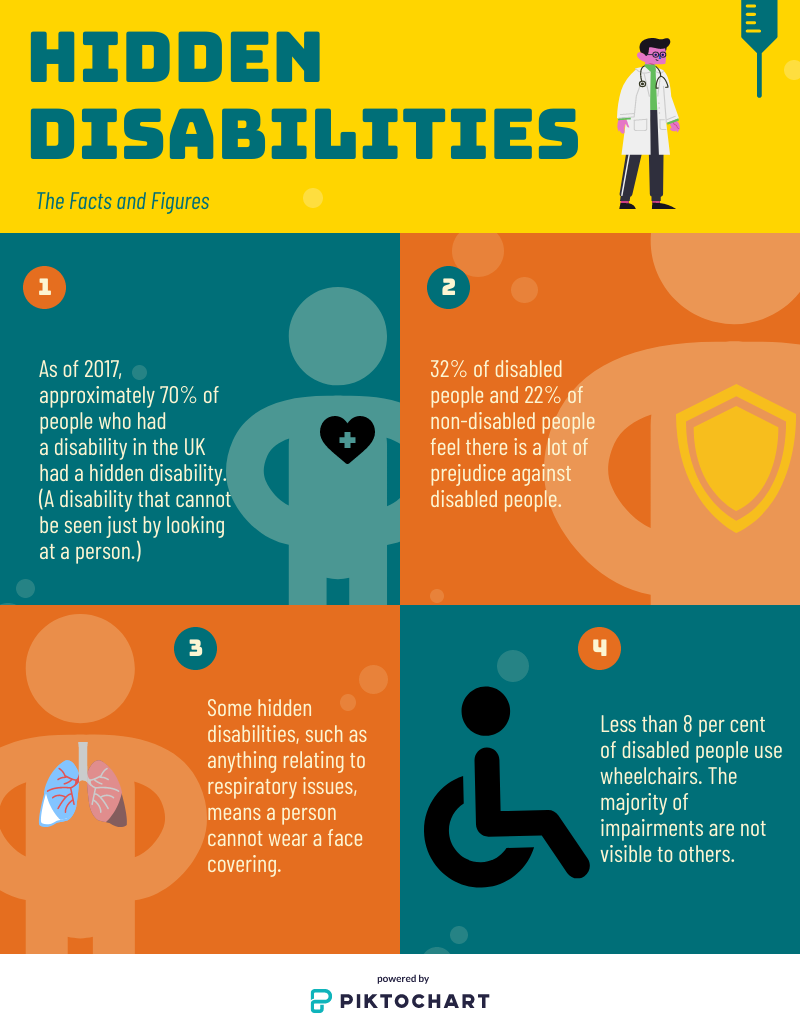
On National Disability Day, it is important to remember that not all disabilities are visible on the outside, many disabilities are hidden and therefore go unrecognised.
This year it has been as crucial as ever for people to understand that some disabilities cannot be recognised from the outside.
Emma Sparrow, the children and young people’s engagement manager at the Royal College of Paediatrics and Child Health, who worked on the Hidden Health project, told us: “From our work in RCPCH&Us with children, young people and families with hidden disability experiences, we’ve found out how difficult at times it can be for them when people make judgements, comments or assumptions without first thinking about whether it could be a medical need.”
The introduction of wearing face coverings since the pandemic began has caused some stress among people who are unable to cooperate.
Most people who cannot wear masks to prevent the spread of Covid-19 have hidden disabilities, such as asthma and other respiratory issues.
“It has also caused some extra challenges, like people feeling like they are being challenged and not believed or having to explain things about them like having a health condition that makes them exempt that they didn’t want people to know about.”
It is estimated that approximately 70% of the people who have a disability in the UK have a condition that is not visible. This emphasises the importance of educating the public about hidden disabilities on national disability day, as the majority of people are struggling with one.
“It’s really important to give people the opportunity to learn more, to find out something new and to have the chance to understand others, and a national disability day gives that focus.”

For a long time, people with hidden disabilities have felt unseen, but the hidden disabilities sunflower has been improving the recognition of people with this issue since 2016.
The hidden disabilities sunflower has been increasingly effective in its efforts to make disabilities more recognisable, especially throughout this year.
People with a disability that would prevent them from wearing a face covering can instead display the hidden disability sunflower badge, decreasing misunderstandings and stigma around not wearing masks due to medical issues.
“It’s been brilliant seeing the sunflower lanyards and cards becoming more widely available and used, plus there have been some brilliant badges and stickers created that explains different hidden identities and disabilities that helps to bring awareness.”
I spoke to Lisa Horan, mother of a young boy with Autism, about how how his hidden disability affects him.
It is hoped that the progress made this year in awareness and respecting people with hidden disabilities will continue and further improve.
You can find more information on hidden disabilities through the RCPH website , and The Hidden Disabilities Sunflower Store. Where you can also purchase your own sunflower lanyard..














Recent Comments